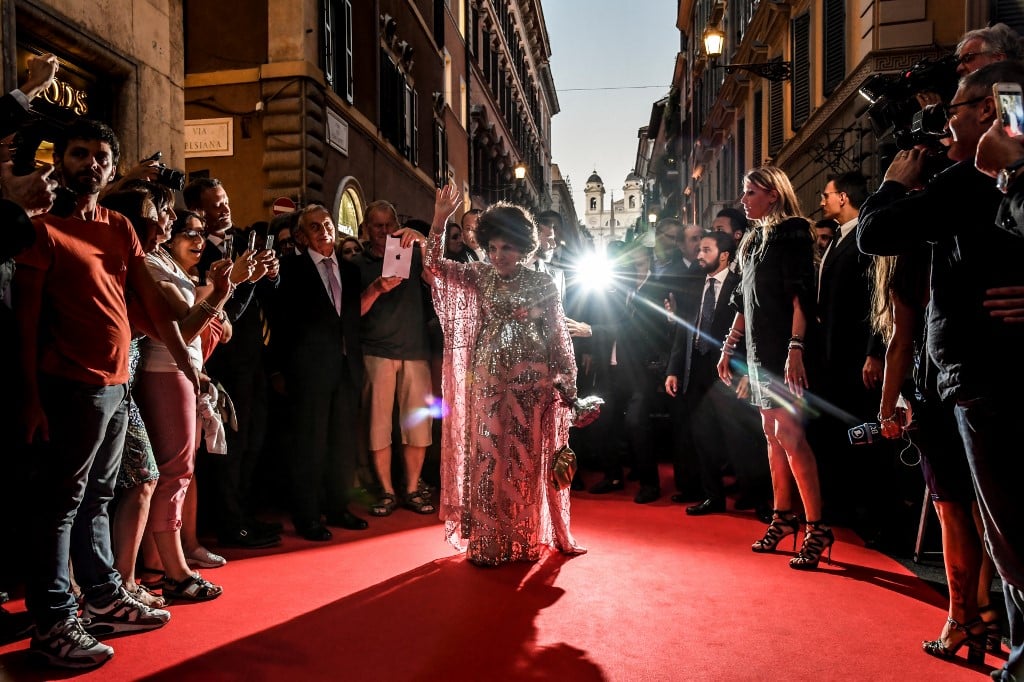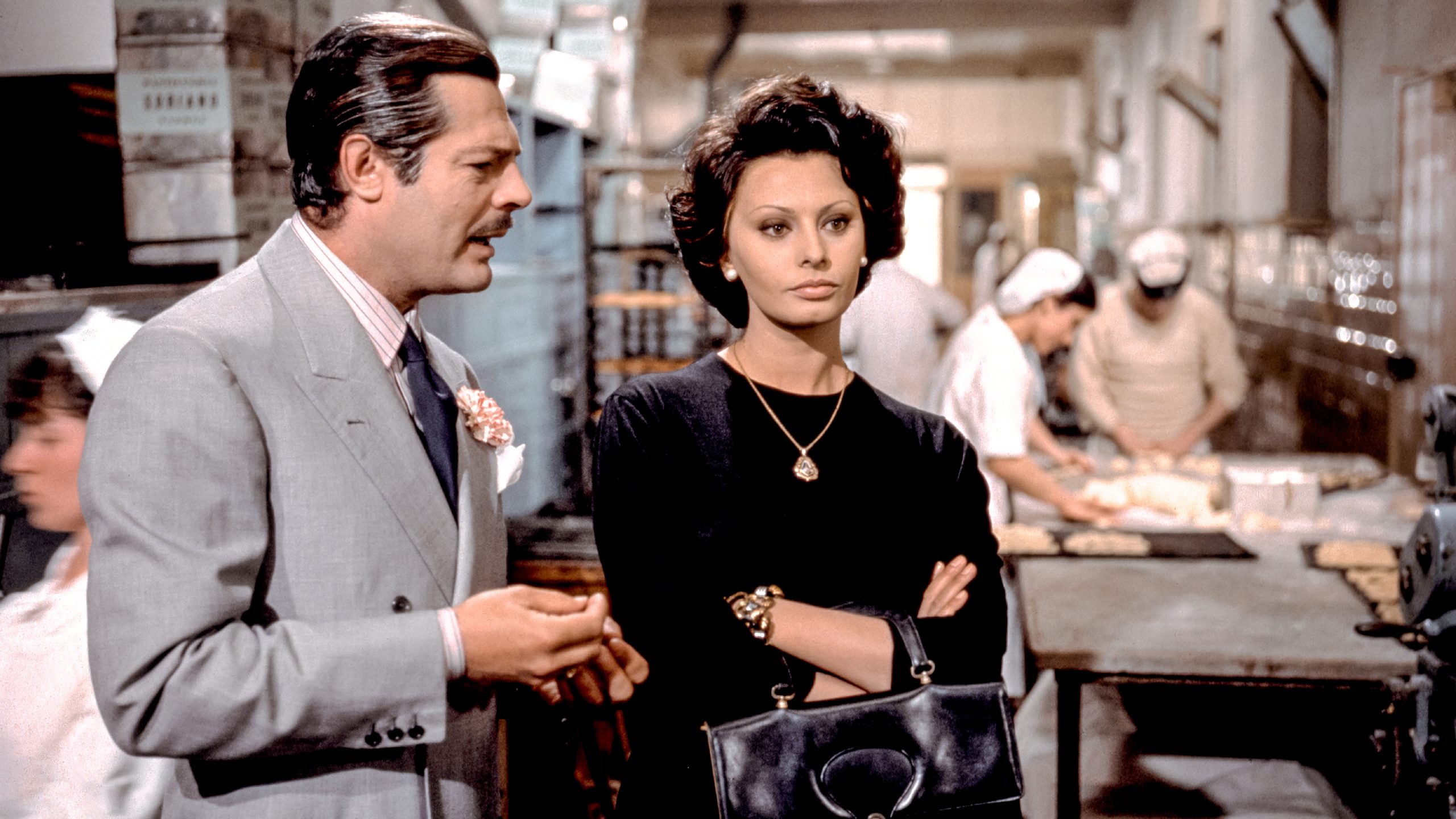If you're a film enthusiast, there's no denying that Italian cinema has left an indelible mark on the global stage. From heartwarming stories to epic masterpieces, famous Italian films have captivated audiences worldwide for decades. In this article, we'll take you on a journey through the most iconic films from Italy, exploring their impact, cultural significance, and why they continue to resonate with viewers today. So grab your popcorn and let's dive in!
Italian cinema is not just about entertainment; it's a reflection of the country's rich history, vibrant culture, and emotional depth. Films from Italy often blend storytelling with stunning visuals, creating experiences that linger in the minds of viewers long after the credits roll. Whether you're a fan of romance, drama, or adventure, there's something for everyone in the world of famous Italian films.
What makes Italian cinema so special? It's the passion, the authenticity, and the way filmmakers bring stories to life. From Federico Fellini's surreal masterpieces to Roberto Rossellini's neorealist classics, Italian films have consistently pushed the boundaries of storytelling. So, let's explore some of the most famous Italian films and discover why they've become timeless classics.
Read also:Aagmaal Gives Revolutionizing Generosity And Community Impact
Table of Contents
- The Golden Age of Italian Cinema
- Neorealism: The Birth of Italian Cinema
- Federico Fellini: A Visionary Filmmaker
- Luchino Visconti: The Master of Epic Dramas
- Roberto Rossellini: The Father of Neorealism
- Italian Comedies: A Laughing Matter
- Modern Italian Films: A New Era
- Award-Winning Italian Films
- The Cultural Impact of Famous Italian Films
- Must-Watch Famous Italian Films
The Golden Age of Italian Cinema
Let's start by diving into the Golden Age of Italian cinema, a period that shaped the film industry as we know it today. This era, which spanned from the late 1940s to the early 1960s, was marked by groundbreaking films that redefined storytelling and visual aesthetics. Directors like Federico Fellini, Luchino Visconti, and Roberto Rossellini were at the forefront of this movement, producing films that are still celebrated as masterpieces.
During this time, Italian filmmakers embraced neorealism, a style that focused on depicting real-life situations and characters. This approach brought authenticity to the screen, allowing audiences to connect with the stories on a deeper level. Films like "La Strada" and "The Bicycle Thief" became iconic representations of this era, showcasing the struggles and triumphs of everyday people.
What Defines the Golden Age?
The Golden Age was characterized by its emphasis on storytelling, character development, and social commentary. Filmmakers used their platforms to address pressing issues such as poverty, war, and societal change. This commitment to realism and honesty set Italian cinema apart from its Hollywood counterparts and earned it a place in film history.
Neorealism: The Birth of Italian Cinema
Neorealism is often considered the foundation of Italian cinema, and for good reason. This movement emerged in the aftermath of World War II, when Italy was rebuilding its infrastructure and identity. Filmmakers turned their cameras to the streets, capturing the raw and unfiltered reality of life in post-war Italy.
One of the most famous Italian films from this period is "Rome, Open City" by Roberto Rossellini. This film, released in 1945, tells the story of resistance fighters during the German occupation of Rome. Its gritty realism and powerful performances made it an instant classic and set the stage for future neorealist works.
- Rome, Open City (1945)
- The Bicycle Thief (1948)
- Umberto D (1952)
Why Neorealism Matters
Neorealism matters because it changed the way stories were told on screen. Instead of relying on elaborate sets and special effects, filmmakers used real locations and non-professional actors to create an authentic experience. This approach not only influenced Italian cinema but also inspired filmmakers around the world to embrace realism in their own work.
Read also:Naughty America Site Your Ultimate Guide To Adult Entertainment
Federico Fellini: A Visionary Filmmaker
No discussion of famous Italian films would be complete without mentioning Federico Fellini, one of the most iconic directors in cinematic history. Fellini's work is characterized by its surreal imagery, dreamlike sequences, and exploration of the human psyche. His films often blur the lines between reality and fantasy, creating experiences that are both captivating and thought-provoking.
Some of Fellini's most famous Italian films include "La Dolce Vita" and "8½." These films explore themes of identity, morality, and the search for meaning in a rapidly changing world. Fellini's unique style and vision have left a lasting impact on the film industry, influencing countless directors and filmmakers.
Key Themes in Fellini's Work
- The Search for Identity
- Morality and Ethics
- The Intersection of Reality and Fantasy
Luchino Visconti: The Master of Epic Dramas
Another legendary figure in Italian cinema is Luchino Visconti, known for his epic dramas that delve into complex social and political issues. Visconti's films are characterized by their grand scale, intricate storytelling, and attention to detail. His ability to blend historical context with personal narratives has made him one of the most respected directors in the industry.
One of Visconti's most famous Italian films is "The Leopard," a sweeping epic set in 19th-century Sicily. The film follows the decline of the aristocracy and the rise of the middle class, offering a poignant commentary on the changing social landscape of Italy. With its stunning visuals and powerful performances, "The Leopard" remains a testament to Visconti's mastery of the craft.
Visconti's Contribution to Italian Cinema
Visconti's contribution to Italian cinema lies in his ability to tackle complex subjects with grace and precision. His films often explore themes of power, class, and identity, providing audiences with a deeper understanding of the world around them. Through his work, Visconti has left an indelible mark on the film industry, inspiring generations of filmmakers to come.
Roberto Rossellini: The Father of Neorealism
Roberto Rossellini is often credited as the father of neorealism, a movement that revolutionized Italian cinema. His films are known for their raw and unfiltered portrayal of life in post-war Italy, capturing the struggles and triumphs of everyday people. Rossellini's commitment to authenticity and honesty has earned him a place in film history as one of the most influential directors of all time.
In addition to "Rome, Open City," Rossellini's other famous Italian films include "Germany, Year Zero" and "Stromboli." These films continue to resonate with audiences today, offering a window into a turbulent period in history and showcasing the resilience of the human spirit.
Rossellini's Legacy
Rossellini's legacy lies in his ability to inspire and influence filmmakers around the world. His commitment to neorealism and his dedication to telling authentic stories have set a standard for excellence in the film industry. Through his work, Rossellini has shown that cinema can be both an art form and a powerful tool for social change.
Italian Comedies: A Laughing Matter
While Italian cinema is often associated with serious dramas and epic masterpieces, it also has a rich tradition of comedy. Italian comedies are known for their wit, charm, and ability to make audiences laugh while also addressing important social issues. These films often blend humor with heartfelt moments, creating experiences that are both entertaining and thought-provoking.
One of the most famous Italian comedies is "Big Deal on Madonna Street," a 1958 film directed by Mario Monicelli. This film tells the story of a group of small-time criminals attempting to pull off a heist, with hilarious results. Its clever dialogue and memorable characters have made it a classic of the genre.
Why Italian Comedies Stand Out
Italian comedies stand out because they often tackle serious subjects with a lighthearted approach. Whether it's exploring the complexities of family life or commenting on societal norms, these films find humor in everyday situations while also offering a deeper perspective. This ability to balance comedy and drama is what makes Italian comedies so special.
Modern Italian Films: A New Era
In recent years, Italian cinema has continued to evolve, producing modern films that resonate with contemporary audiences. These films often explore themes of identity, globalization, and the challenges of modern life, offering fresh perspectives on the world we live in today. While they may differ in style and substance from their predecessors, modern Italian films remain true to the country's rich cinematic tradition.
Some of the most famous Italian films from this era include "The Great Beauty" and "La Vita è Bella." These films have garnered critical acclaim and international recognition, proving that Italian cinema is as relevant and impactful as ever.
Trends in Modern Italian Cinema
- Exploration of Identity and Belonging
- Commentary on Globalization and Technology
- Focus on Personal Stories in a Broader Context
Award-Winning Italian Films
Italian cinema has been recognized with numerous awards over the years, including multiple Academy Awards and Golden Globes. These accolades are a testament to the quality and impact of famous Italian films, showcasing their ability to captivate and inspire audiences worldwide.
Some of the most award-winning Italian films include "Cinema Paradiso," "Life is Beautiful," and "La Grande Bellezza." These films have not only received critical acclaim but have also resonated with audiences on a personal level, proving that great cinema transcends language and culture.
Why Awards Matter
Awards matter because they validate the hard work and dedication of filmmakers and recognize the impact of their work. For Italian cinema, awards have played a crucial role in bringing attention to the country's rich cinematic tradition and showcasing its contributions to the global film industry.
The Cultural Impact of Famous Italian Films
Italian films have had a profound cultural impact, influencing everything from fashion to food to language. They have introduced audiences to the beauty of Italy and its people, offering a glimpse into a world that is both familiar and exotic. Through their stories, famous Italian films have helped shape the way we view the world and our place in it.
From the iconic fashion of "La Dolce Vita" to the culinary delights of "Big Night," Italian films have left an indelible mark on popular culture. They have inspired countless filmmakers, designers, and artists, proving that great art has the power to transcend borders and unite people from all walks of life.
How Italian Films Have Shaped Culture
- Influencing Fashion and Style
- Introducing Audiences to Italian Cuisine
- Shaping Global Perceptions of Italy
Must-Watch Famous Italian Films
So, what are some must-watch famous Italian films that every cinephile should see? Here's a list to get you started:
- La Strada (1954)
- 8½ (1963)
- The Bicycle Thief (1948)
- The Leopard (1963)
- Life is Beautiful (1997)
- Cinema Paradiso (1988)
- La Dolce Vita (1960)
- Big Deal on Madonna Street (1958)
- La Grande Bellezza (2013)
- Umberto D (1952)
These films represent the best of Italian cinema, offering a diverse range of stories and styles that showcase the country's rich cinematic tradition. Whether you're a fan of drama, comedy, or epic masterpieces, there's something for everyone in this list.
Conclusion
In conclusion, famous Italian films have left an indelible mark on the global film industry, offering audiences a glimpse into the rich cultural tapestry of Italy


